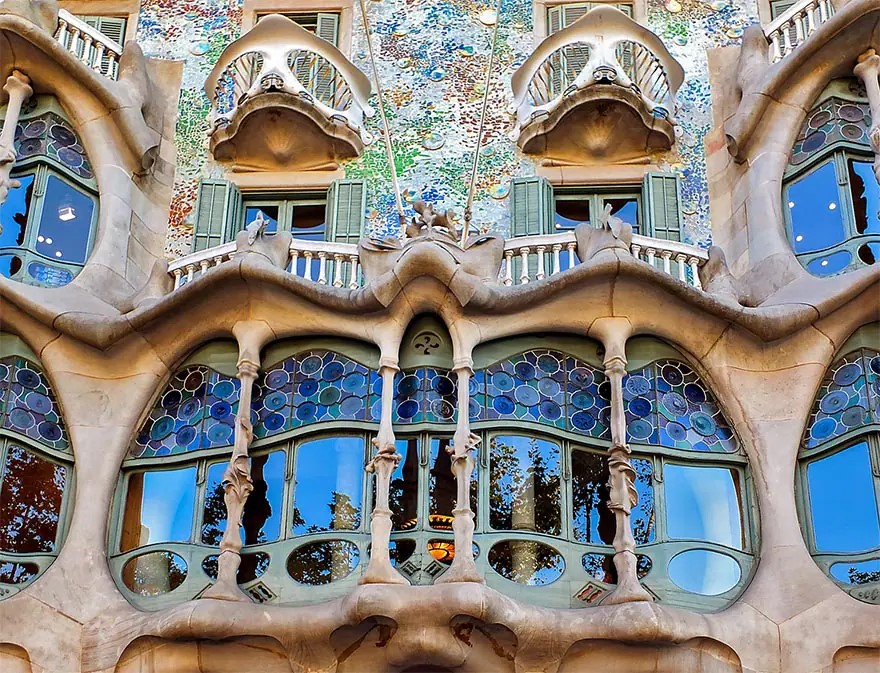
The centrality of Barcelona to all artistic
activities greatly influenced the shaping of Gaudí's architecture. In an era
marked by the empowerment of the middle class, increased wealth, and a rise in
urban transformation due to industrial development, Gaudí was influenced by the
ideas of English thinker John Ruskin, who stated that "ornament is the
source of architecture." Gradually moving beyond the dominant style of the
time, Gaudí created a distinctive, difficult-to-categorize aesthetic.
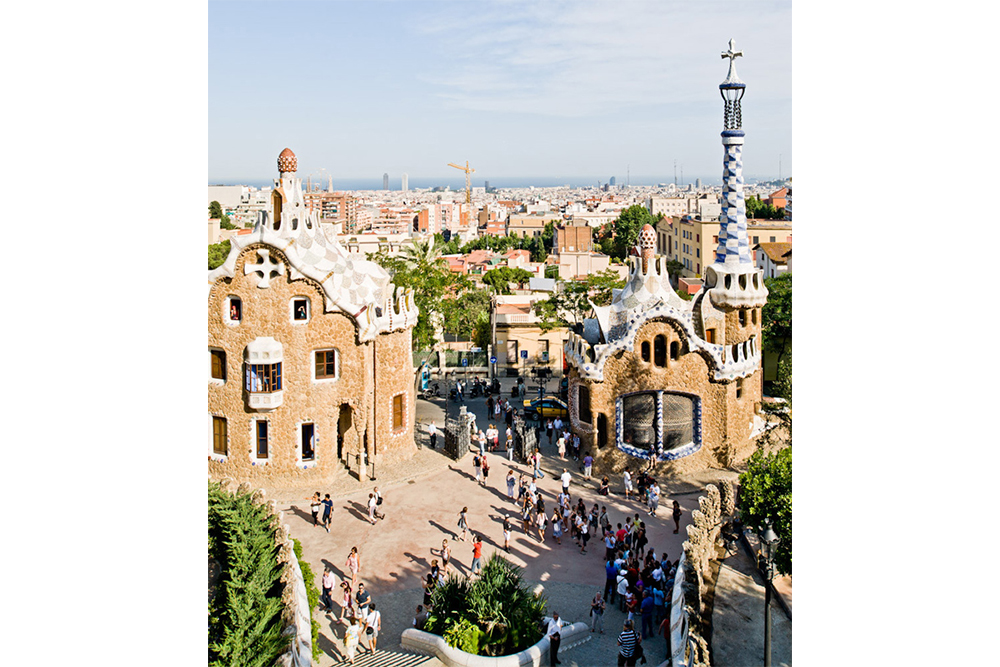
Antoni Gaudí perceived architecture as an integral art where light, color, sound, and mosaics permeate each other. His essence lay in always perceiving nature as the unique creation of a creator and making room for a spirituality that transcends technique in his works. Gaudí infused his structures with deep meaning by designing them not only for aesthetic purposes but also laden with symbolic figures. Natural or religious symbols are integral to his unique architecture.
Sagrada Familia, one of Gaudí's most famous
works, has become a symbol of Barcelona. Construction began in 1882 and, even
after Gaudí's death, remains unfinished. The church captivates with its
religious themes and intricate details. With its soaring towers, detailed
facades, and colorful stained glass windows in the interior, Sagrada Familia
exudes an immense spiritual atmosphere, seamlessly combining Gaudí's reverence
for nature and religious symbols.
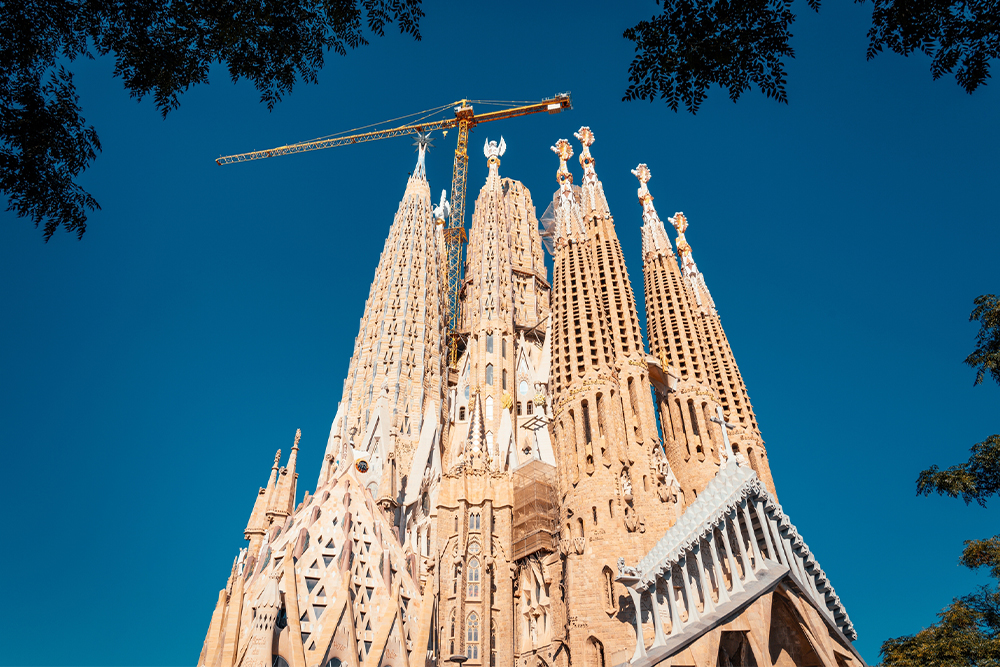
One of the most distinctive features in
Gaudí's works is the inspiration drawn from the organic forms and processes of
nature. The unique structures of plants, animals, and seashells converge in
Gaudí's designs, creating lively and flowing forms. The towers of Sagrada
Familia, reflecting the natural form of tree branches rising like a blossoming
flower, emphasize the organic nature of the architecture. The structure's
unique details and organic elements integrated with the Gothic style continue
to enchant visitors today.
Casa Milà, the last residential project
designed by Antoni Gaudí, is also known as La Pedrera, meaning 'the quarry,'
and draws inspiration from the Modernista movement, Spain's version of Art
Nouveau. Antoni Gaudí's Casa Milà, with its undulating facade and surreal
sculptural roof, exhibits an artificial yet highly organic appearance, as if
carved directly from the earth. This magnificent work, which still houses
tenants today, stands out as an artistic masterpiece reflecting Gaudi's
inspiration from nature and his unique design sensibility.
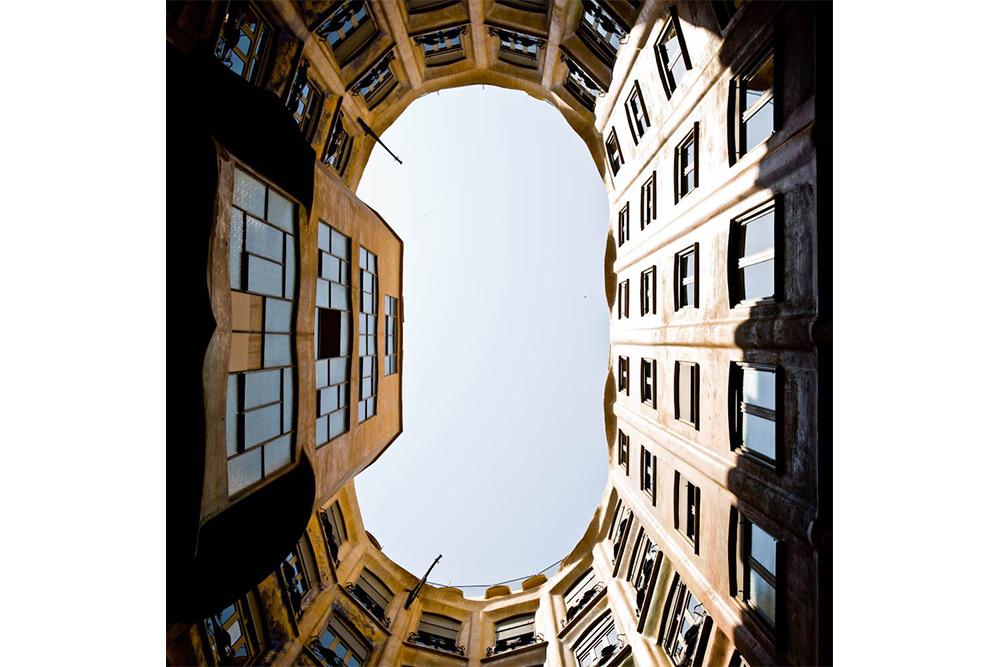
Gaudí's architectural philosophy achieves a perfect balance between aesthetics and functionality. Casa Milà not only showcases this balance through its exterior adorned with organic forms but also through its interior arrangement. Spacious courtyards, circular layouts, and the use of natural light demonstrate that Casa Milà is not only beautiful but also a livable space. The building accommodates rooftop windows, emergency stairs, fans, and chimneys, but each function takes on an autonomous sculptural quality, becoming an integral part of the building itself.
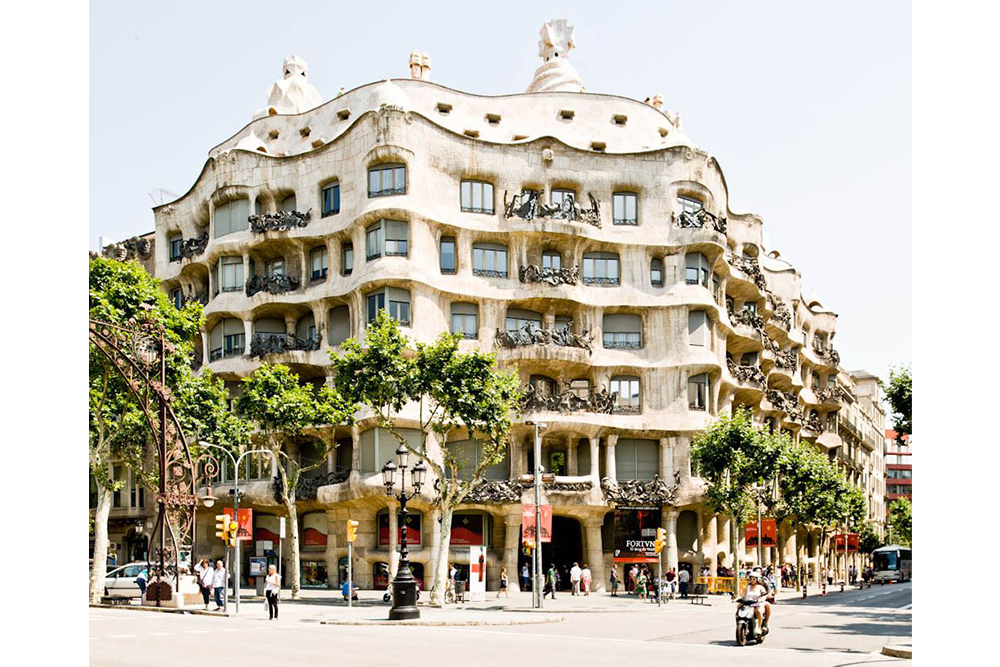
Casa Milà has pushed the formal boundaries of linearity, and Gaudi's intentional use of natural and organic forms for the building's shape has significantly inspired biomimicry applications. Gaudi was a genius in structure and form, and Casa Milà attests to this. The Mila module, designed as part of Dendro's Marküteri (Squares) product group within the 'Art Collection,' carries patterns inspired by Casa Milà's style, promising to create a unique atmosphere in living spaces. The harmony between oak and walnut not only creates a powerful impact but also leaves a lasting impression. This module, inspired by Gaudi's transcendent creativity, appeals to those seeking a timeless and bold language in interior spaces.
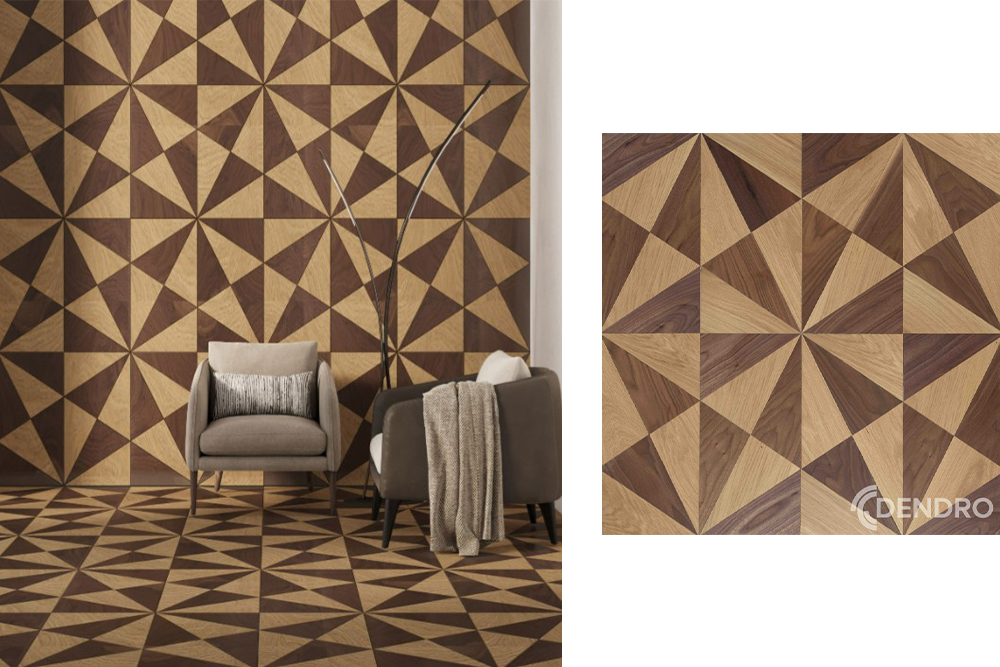
Park Güell is renowned for its vibrant mosaics
and organic structures, serving as a magnificent example of Gaudi's style and symbolism.
Gaudí transforms this park into an open-air art gallery seamlessly integrated
with natural elements. The use of natural, curvilinear forms, vibrant colors
with mosaics, and towers collectively turn Park Güell into an expression of
Gaudí's creativity alongside being a park for visitors. Emphasizing the
contribution of color and light to architectural design, Gaudi enhances the
interaction of his structures with the surrounding environment. This park,
organically intertwined with nature, aims to evoke a sense of an extension of
the natural world and the adjacent forest for its residents and visitors.
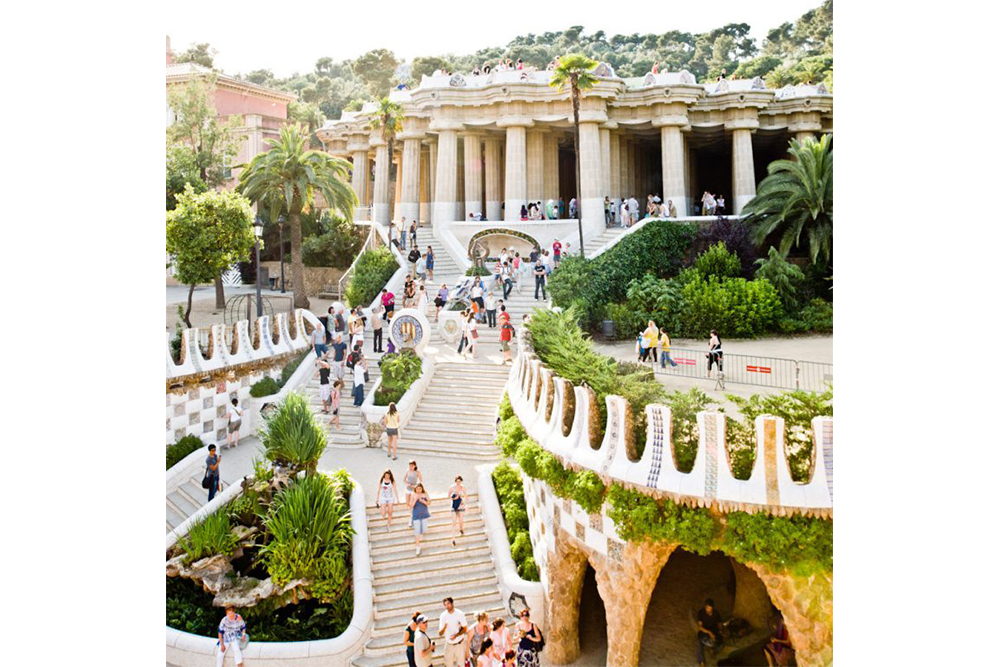
Antoni Gaudí's architectural legacy stands out
not only for the visual allure of his structures but also for the profound
connection he establishes with nature, color, and symbolism. Each of his works
reflects the architect's passionate approach and desire to understand the dance
of nature. Exploring Gaudí's works while wandering through the streets of
Barcelona will provide an unforgettable experience for art and architecture
enthusiasts..
https://tr.wikipedia.org/wiki/Antoni_Gaudi
https://www.artnews.com/feature/antoni-gaudi-who-is-he-famous-works-1234575349/
https://www.archdaily.com/367681/ad-classics-casa-mila-antoni-gaudi
https://www.thecollector.com/antoni-gaudi-works/